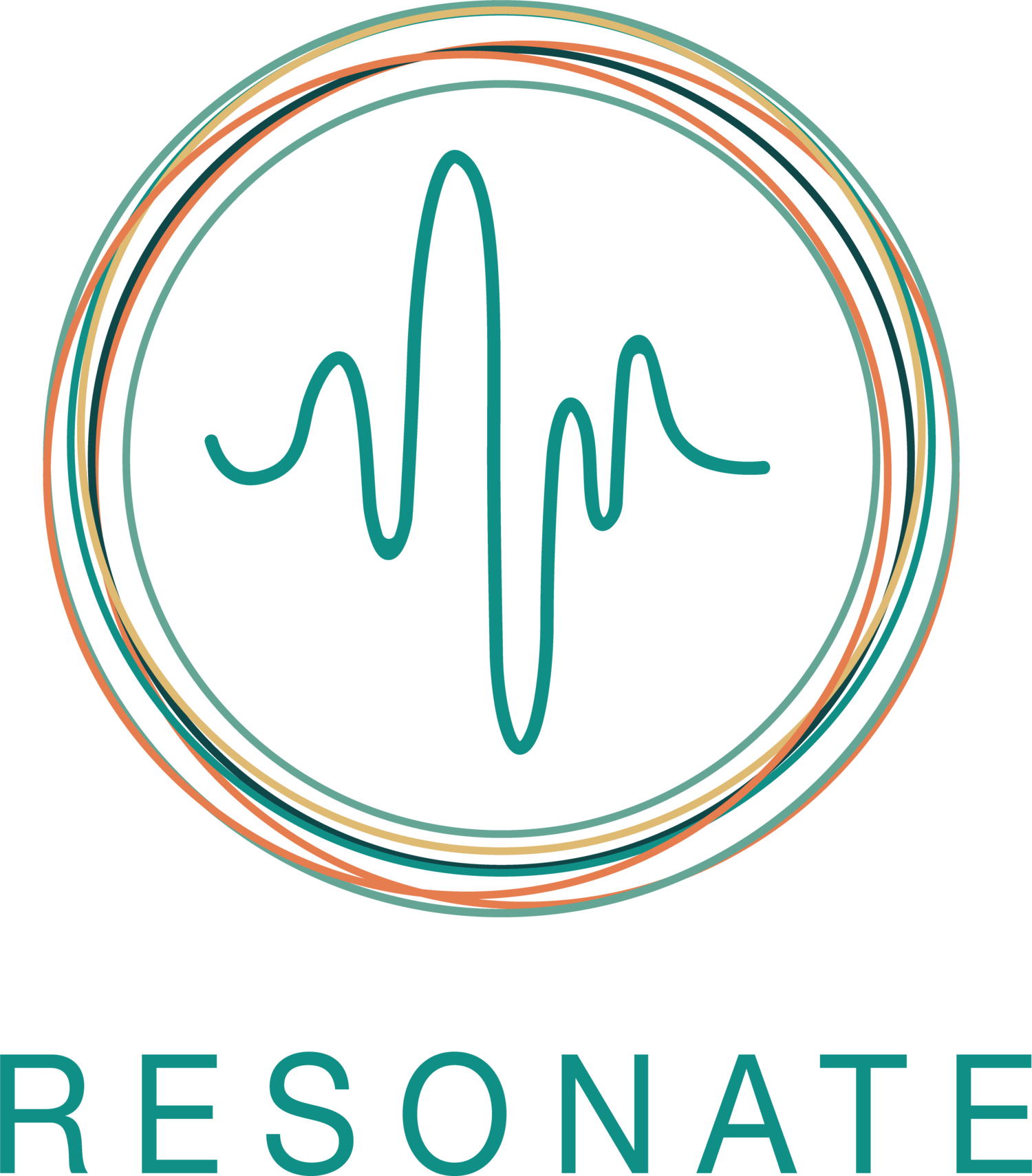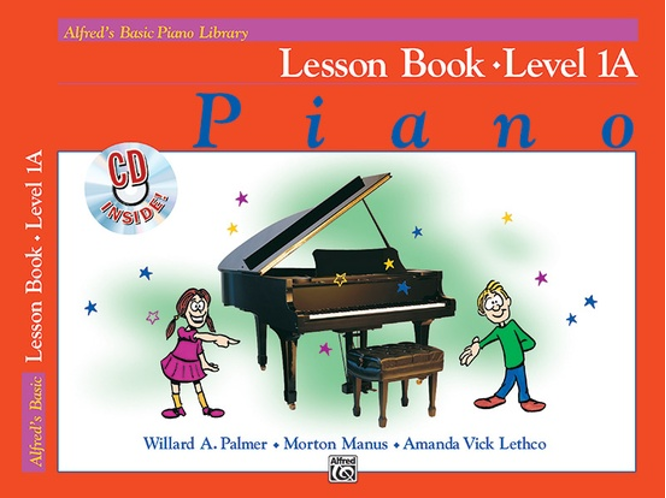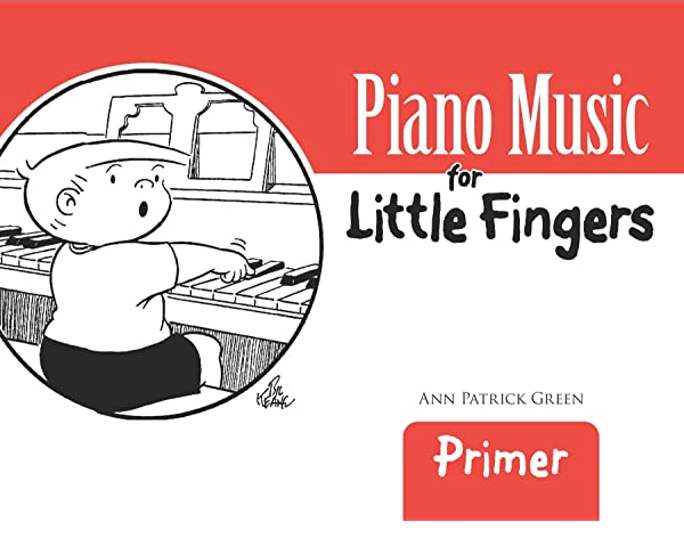A Review of Beginner Piano Books
Yeon Sol is a music therapist and music instructor at Resonate Music Therapy. She wrote this review of beginner piano books to help new students in Colorado Springs select a piano curriculum that best fits their needs.
If you purchase a piano book using the links in this article, Resonate Music will receive a small commission!
There are countless beginner piano books in the market and it can be difficult to figure out what book may work best for your student or child. Here are some things I look for in a beginner piano book.
A Focus on Basic Foundational Skills
It is absolutely essential that one takes plenty of time to build basic foundational skills when learning the piano because it is much easier to learn something correctly the first time than to unlearn a bad habit!
I’m talking about posture, hand shapes, how fingers move around the keys, fingerings, etc. A great beginner piano book will give precise and detailed instructions of healthy foundational skills and creative ways to teach them!
Proper Pacing
Learning is all about good pacing! Some people do better with faster paced learning while some people slower. Finding a perfect balance in the pacing keeps learning fun and exciting! Because there are so many different aspects of music to learn such as notes, rhythm, harmony, dynamics, etc., proper pacing is necessary in order to integrate all the concepts. A good beginner piano book allows the student to practice old concepts while adding on new concepts.
A Consistent Approach to Basic Concepts
There are multiple ways to teach musical concepts- needless to say, some ways are better than others. What I find the most important are the sequences and the beginning point in which a book introduces the concepts. For example, the patterns of the keys on the piano are best remembered from the note C to C (or the set of two black keys, then three black keys). However, a lot of books tend to teach the “musical alphabet” from A to A. Meanwhile, when teaching how to read music, they will begin by teaching students how to identify the G note.
The inconsistency of jumping around the learning focal point makes the concept extremely difficult to grasp! A well-thought out book is considerate of the sequencing of knowledge that the student has gained from the previous lesson then uses that as a centering point for the next lesson. This is a key feature of my review of beginner piano books.
Teaching/Practice Guide for Teachers
I enjoy and recommend beginner piano books that have guides for teachers. They will either give instruction on how to best support the students in their learning, suggest creative activities, or provide a teacher’s part to play with the students. Playing together with the teacher can have many positive effects on students’ learning:
Builds rapport
Enforces consistent tempo while playing
Gives a sense of accomplishment in learning the song.
The Quality of Songs Included
At the end of the day, while students are learning to play the piano, they are really learning to play music. The two must not be separated! I find that books that have interesting songs that are both relevant to learning and introduce a new spectrum of musicality such as different modes, rhythmic patterns, styles, and culture add more value to students’ learning.
A Focus on Technical Exercises
It is imperative that one is being intentional about technical exercises when learning the piano. This could mean playing scales, making leaps, playing multiple notes at the same time, playing louder and softer etc. Effective books will be intentional about including and integrating technical exercises in their songs.
I have rated and reviewed some of the most popular beginner piano books out in the market using the categories above!
Review of Beginner Piano Books on the Market
Bastien Piano Basics- primer
Overall ⭐⭐⭐⭐⭐
Bastien Piano Basics Primer level book is an excellent book that ticks most every box! It spends a good chunk of time covering basic practices but moving forward through the various concepts is not overwhelming.
I wish that there were more pages that covered music theory topics specifically, so that is something that the teacher must be mindful of taking time to teach those concepts to the students. The book has the most diverse and creative songs out of all the books reviewed. I also enjoyed their illustrations immensely. By the end of the book, students will be able to play beginner-intermediate songs on C major and 4/4 time signature on both hands.
Focus on basic foundational skills ⭐⭐⭐⭐⭐
Pacing ⭐⭐⭐⭐⭐
How concepts are approached ⭐⭐⭐⭐
Teaching/practice guide for teachers⭐⭐⭐⭐⭐
The quality of songs included ⭐⭐⭐⭐⭐
Focus on technical exercises ⭐⭐⭐⭐⭐
Suzuki- Beginner Piano Book
Overall ⭐⭐⭐
Suzuki is a classic music book! I would say this is more of an exercise book than anything else. It is great in that it introduces a lot of accompaniment patterns that are prominent in classical music. It is also nice that every song in the book is in C major while they embody different styles and moods of music. This book would be great for a student who used to learn piano a while back but has stopped and is picking back up!
Focus on basic foundational skills ⭐
Pacing ⭐⭐⭐
How concepts are approached ⭐⭐
Teaching/practice guide for teachers⭐⭐
The quality of songs included ⭐⭐⭐⭐
Focus on technical exercises ⭐⭐⭐⭐⭐
Piano Adventures (Primer)
Overall ⭐⭐⭐⭐
Piano adventure has a lot of activities for the foundational aspect of learning the piano. It has great illustrations, great teaching guides for teachers (including duet parts). I like that it takes time to teach theory concepts throughout by having activities where the students can write and practice these concepts in the book.
The downfall of this book, according to my review of beginner piano books, is that the songs are not as interesting and each of them sound kind of similar to each other. The concepts also jump around a little and the pacing is on the slower side so by the end of the book, student will be able to play very simple C major songs in 4/4 time signature on both hands.
Focus on basic foundational skills ⭐⭐⭐⭐⭐
Pacing ⭐⭐⭐
How concepts are approached ⭐⭐⭐⭐
Teaching/practice guide for teachers⭐⭐⭐⭐⭐
The quality of songs included ⭐⭐⭐
Focus on technical exercises ⭐⭐⭐⭐⭐
Alfred’s Basic Piano- Lesson Book 1A
Overall ⭐⭐⭐⭐
Alfred’s Basic Piano is a fine book and has a lot of great qualities mentioned in other books. However, teaching of the notations jumps around making it difficult for the learners to really grasp reading of the notes consistently.
The songs are based upon specific technicality such as intervals, dynamics, and accents- but they are not very interesting compositionally. Pace is on the slow side so by the end of the book, student will be able to play simple C major songs in 3/3 and 4/4 time signatures on both hands.
Focus on basic foundational skills ⭐⭐⭐⭐
Pacing ⭐⭐⭐⭐
How concepts are approached ⭐⭐⭐
Teaching/practice guide for teachers⭐⭐⭐
The quality of songs included ⭐⭐⭐⭐
Focus on technical exercises ⭐⭐⭐⭐
The Easy Way to Play Piano by Joe Procopio
Overall ⭐⭐⭐
The easy way to play piano by Joe Procopio is a great book for an older student who wishes to self-teach, but I would not really suggest it for a beginner student aged 2-10. Instead, I’d suggest they learn from a teacher.
The book skips on a lot of the basic foundational skills and exercises. However, it has great technical exercises that work with different rhythms, scales, accidentals, and chords. In that sense, it is a fast-paced book.
It does not include many performative pieces and because the pieces are all for technical practice, they are not necessarily the most “interesting.”
Focus on basic foundational skills ⭐⭐⭐
Pacing ⭐⭐⭐⭐
How concepts are approached ⭐⭐⭐⭐
Teaching/practice guide for teachers⭐⭐⭐
The quality of songs included ⭐⭐⭐
Focus on technical exercises ⭐⭐⭐⭐
Piano Music for Little Fingers: Primer
Overall ⭐⭐⭐⭐
I personally think Piano Music for Little Fingers is a unique teaching book. It is the only book out of what I have reviewed that teaches Solfege (Do, Re, Mi). It also has plenty of theory spaces for the students to learn by writing. I like that it teaches each note separately before moving on to learning songs.
However, the pacing is quite wonky- that one could really finish the book in a few lessons and would have learned how to play “Mary Had A Little Lamb” on both hands. That’s to say, there also aren’t a lot of songs in the book! I do think it has some unique exercises and unique approaches to teaching the concepts.
Focus on basic foundational skills ⭐⭐⭐⭐⭐
Pacing ⭐⭐⭐
How concepts are approached ⭐⭐⭐⭐
Teaching/practice guide for teachers⭐⭐⭐⭐
The quality of songs included ⭐⭐⭐
Focus on technical exercises ⭐⭐⭐⭐
Learn More about Piano Lessons In Colorado Springs
Beginner piano books can be excellent ways to learn the piano at home. But when it comes to new players, they usually need the structure of an in-person lesson. Piano lessons help young students focus and explore the instrument through questions and conversations.
We recommend that you click here to learn more about our piano lessons in Colorado Springs.
Our teachers are always on the lookout for the best piano resources, and we hope you enjoyed this review of beginner piano books.






